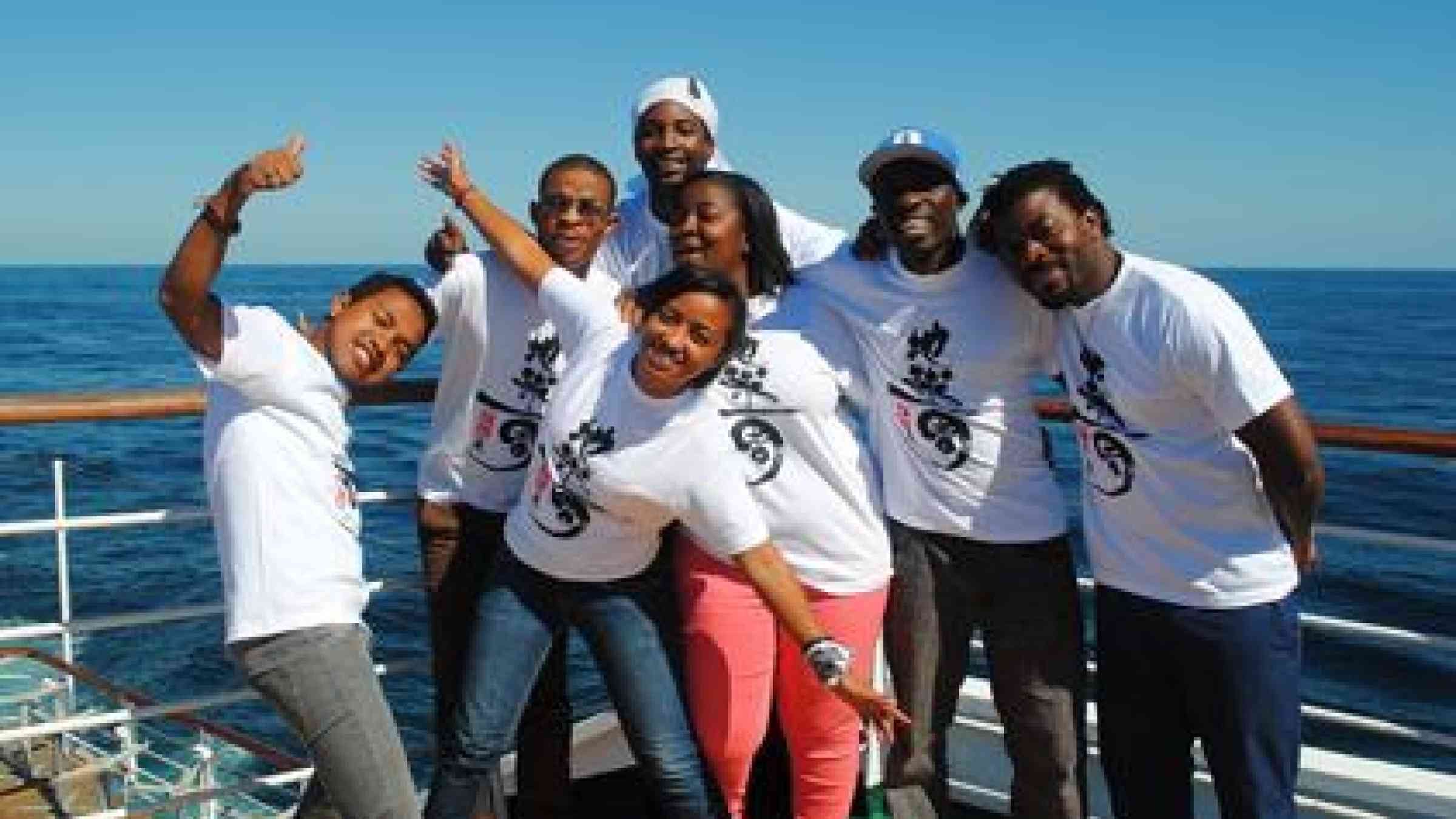African youth commit to reduce disaster risks

NAIROBI, 14 January 2015 – African youth leaders are taking action to make their communities better informed and prepared to reduce their exposure to the effects of disasters.
“Advocacy on disaster risk reduction and resilience is important because it ensures that as young people we have a voice and that it will be heard. It can also promote positive change to the structure and policies of organizations, which will be of benefit to people who are affected,” said Lalumbe Makuya, a youth leader from South Africa.
Makuya is the founder and project director of the Naledi Foundation, an education-based organization, which works with students in rural schools in South Arica.
“Advocacy on disaster risk reduction is needed in the education space because children on my programmes miss a lot of important school work during the rainy seasons due to floods,” she explained.
Makuya was among seven youth leaders who have just participated in a disaster risk reduction educational voyage aboard the passenger ship of the Japan-based NGO Peace Boat, which sailed from the port of Maputo in Mozambique to Cape Town, South Africa. The 18-23 December seaborne training session was facilitated by Peace Boat in cooperation with UNISDR, through its Regional Office for Africa.
The youth leaders comprised outstanding individuals drawn from Kenya, Madagascar, Mozambique and South Africa, who through workshops, seminars and presentations explored key issues related to disasters and related costs in terms of loss of lives, injuries and damage to infrastructure.
UNISDR presentations to the youth leaders and some 800 passengers aboard the Peace Boat passenger ship raised awareness on disaster risk reduction. The passengers were mainly from Japan, but also hailed from Australia, Britain, Canada, China, Colombia, Mexico, Netherlands, New Zealand, Singapore, South Korea, Sweden, and the United States.
The topical subject of risk-sensitive tourism was also explored, given that the sector drives the economies of many developing countries. In 2013, travel and tourism contributed to 9.5 percent of global Gross Domestic Product (worth US$7 trillion), according to the World Travel and Tourism Council. Development should therefore plan how best to reduce the effects of natural disasters and avoid the creation of new risks that hit tourism and travel. The industry is vulnerable to crises such as epidemics, wildfires, cyclones, floods, earthquake, and tsunamis, with adverse impacts ranging from travel cancellations to deaths and injuries to visitors’ deaths.
At the end of the Peace Boat/UNISDR training programme, the seven youth leaders formed the Africa Resilient Youth group and signed a declaration to highlight their commitment to create awareness and reduce disaster risks at the local, national and regional levels through: social media campaigns encouraging their various local governments to sign up and participate in the UNISDR-led Making Cities Resilient Campaign; and collaboration to strengthen the Africa disaster risk reduction Youth Champions Network.
“There can be nothing for us, without us. In my case, disasters affect the children that go to school as most of them cross rivers. It is up to me as a young person to educate those who think it is natural for rivers to flood and that nothing can be done about it,” said Makuya.
Peace Boat, in partnership with UNISDR Americas, will from 22-27 January conduct another programme, between the Chilean port of Valparaiso and Callao in Peru. It is part of the gathering momentum towards the Third UN World Conference on Disaster Risk Reduction (WCDRR), hosted by the Japanese city of Sendai from 14-18 March.
The other youth leaders who participated in the Peace Boat/UNISDR training were: Myriam Vololonarivo, a Madagascan journalist who is a youth trainer and advocacy member of the World Association of Girl Guides and Girl Scouts; Fetraniaina Rakotondrasoava, also from Madagascar, a TV reporter and founder of TSIMANAVAKA, a youth association focusing on children, women and vulnerable families; Felix Carlos, from Mozambique, an actor, trainer and community mobilization specialist; Fernando Mussane, also from Mozambique, a volunteer with the National Institute of Disaster Management and the Red Cross of Mozambique; Sabelo Mnukwa from South Africa who is a project/risk management student at the University of South Africa; and Kenyan Raphael Obonyo, a member and external advisor to the UN-Habitat Youth Board and an Africa Representative to the World Bank’s Global Coordination Board of the Global Youth Anti-Corruption Network.
Peace Boat is a partner in the Making Cities Resilient campaign, using its physical presence to raise awareness in the ports it visits. The Maputo–Cape Town voyage was the 86th such mission. It also provide a venue for delivering education and training programmes, and a vehicle to bring people and expertise to different regions of the world.
The Africa Resilient Youth Declaration is available at: http://www.unisdr.org/files/41799_signedoceandreamdeclaration.pdf